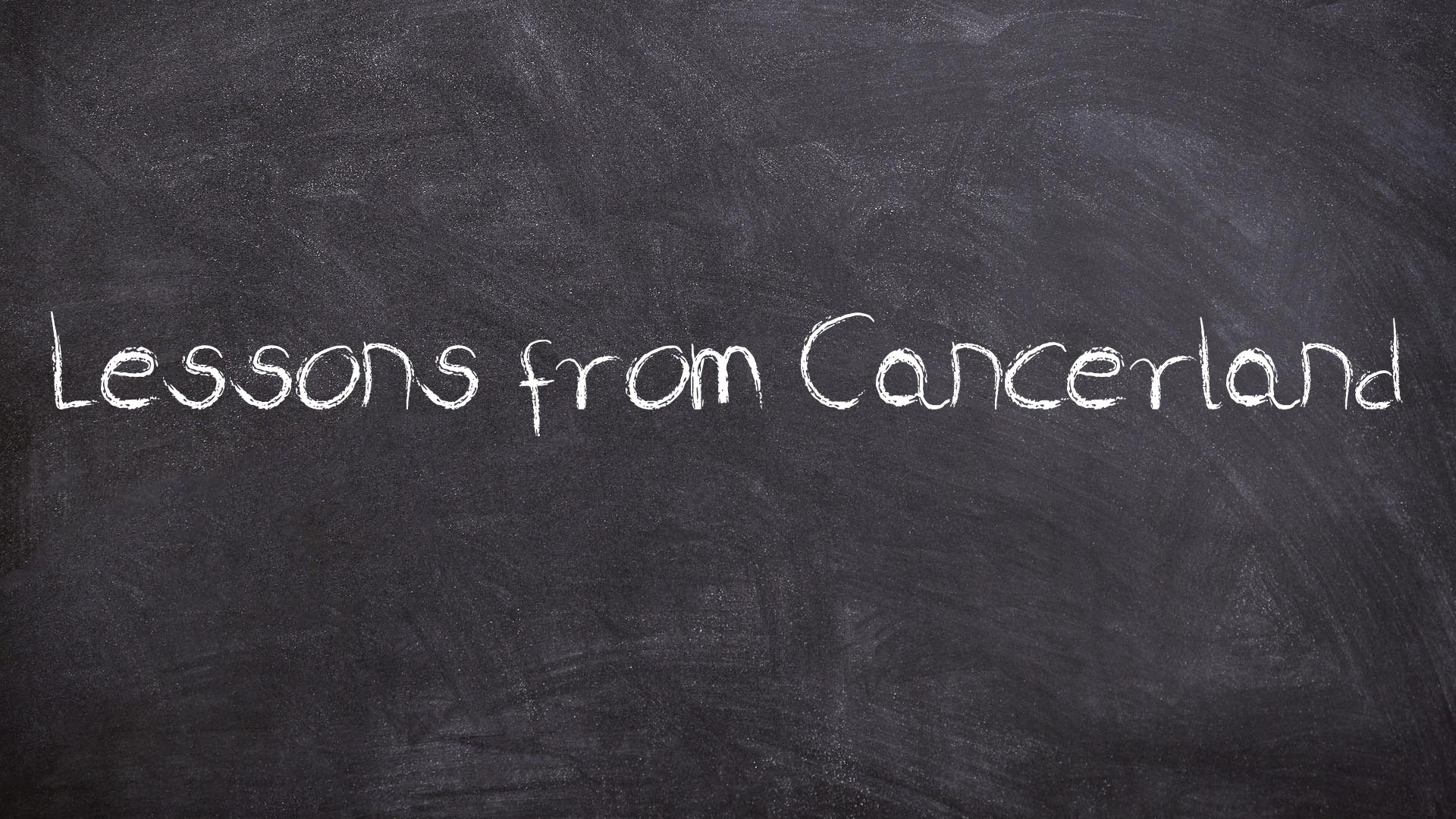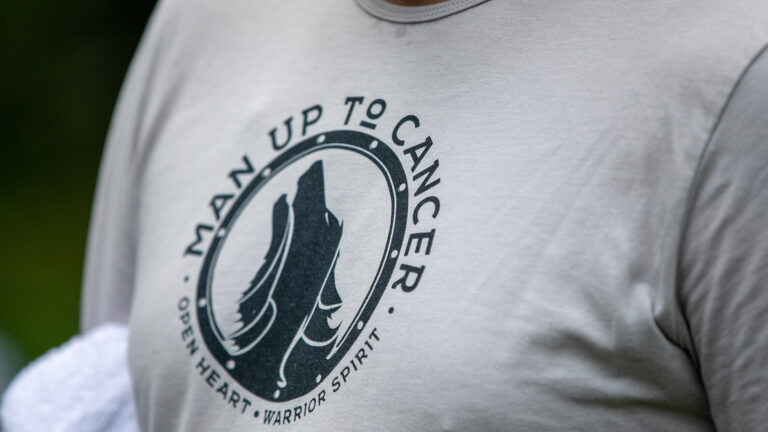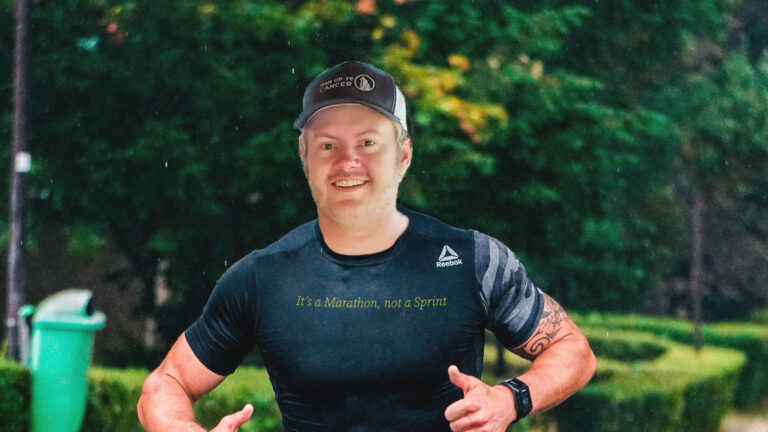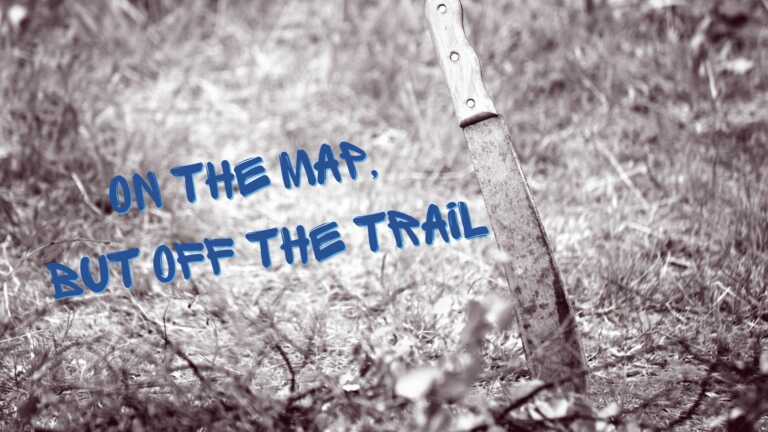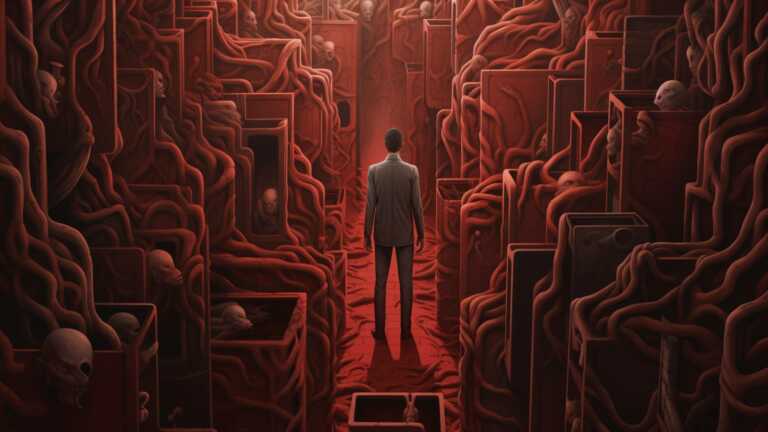When I was attending the Gathering of Wolves, I really wanted to learn about different experiences so that I can include those nuggets in my advocacy work, which is quickly becoming more than just supporting and engaging with people on social media.
For this piece, I’ve also drawn from conversations I’ve had with people in support groups and on social media. I’ve attended one group a week, minimum, for the last several months.
I’m not going to attribute the lessons to specific people out of privacy and respect, but I do think a lot of these are valuable to share.
Let’s kick this off:
Finding your “why” is an important part of dealing with cancer
Cancer treatment is really hard, especially for those dealing with metastatic disease. Between the surgeries, chemotherapy, immunotherapy, and radiation, the treatment is grueling—and that doesn’t include the mental health effects, either.
When it comes to facing cancer, it’s important to find a reason to push through the bullshit. Whether it’s a job, hobby, family, or just enduring because you still have things you want to do, knowing what the fight is about helps steel you against the worst parts of the disease.
My why can be summed up in one word: Love.
I love life. I love my family. I love helping people. I love cheesesteaks. I love so many things.
This is what keeps me going.
The oil still needs to be changed
In spite of cancer, even the most mundane of tasks need completing. One of the guys at the Gathering shared this statement and I thought it really captured the truth.
Dinner still needs to be made. The plants still need to be watered. The house still needs to be tidied and laundry done.
Cancer stops so many things. It’s like a freight train hitting a brick wall. That doesn’t mean all of the minutiae gets to fall to the wayside.
Keeping up with the mundane through treatment is easier for some than others, but even when a person loses mobility, all of the day-to-day chores still need doing.
Toxic masculinity is still a huge barrier for men
Society still expects men to behave by keeping feelings and emotions bottled up and just powering through life without leaning on other people.
I get to take credit for this metaphor, but it’s been a succinct way to sum up the importance of eschewing toxic masculinity in favour of building supportive relationships and being vulnerable.
Take the fittest gym bro you know. I’m talking muscles here. Lots of weightlifting. Gym. Tan. Laundry. The whole shebang.
Now, think about the support that he required to get in shape. Regardless of anything else, at the very least, he had a spotter helping him at some point.
I’ve come to describe support groups as being my spotter for mental health. Like weightlifting, you have to do the bulk of the work yourself. But it’s not something that can, should, or have to do alone.
Seeking out support provides the tools to effectively keep the mind healthy when it’s easy to fall of the rails.
Chemotherapy can make some people feel better, others worse
Chemotherapy has been absolutely draining for me. Before I was diagnosed and had surgery, life was pretty much normal. I just had some blood in my stool but otherwise felt mostly ok. Sure, there was some fatigue, but nothing like what I’ve experienced during chemotherapy.
I learned from a few people that the way they feel on chemotherapy is much better than they felt before it. Depending on the type of cancer, chemotherapy is often used before any surgery (even instead of surgery) to shrink tumours or cure the cancer.
So, imagine my surprise when I learned that there are folks out there who feel more energetic and alive on chemotherapy because their tumours were causing them so much pain, fatigue, and discomfort. Shrinking tumours means increased quality of life, in spite of the side effects of chemotherapy.
It seems obvious spelling it out, but through my own lens, it had never crossed my mind before.
The worst experience of my life could be someone else’s silver bullet.
Cancer causes a serious identity crisis
Before cancer, everyone has an identity. This can be a cultural, professional, sexual, or physical identity, to name a few.
Cancer often changes a person’s identity in ways that others cannot understand.
Given how hesitant men are to join support groups, I find myself talking to a lot of women. Though it affects men as well, breast cancer is one of those cancers that really fucks with how a person identifies.
Having one or both breasts removed can be absolutely devastating to a woman’s gender and sexual identities. For a man, a similar comparison would be an orchiectomy (having one or both testicles removed). Now, not only do you have cancer, but your body doesn’t look the same way as everyone else’s. You lose the femininity or masculinity that’s core to who you are.
Another example is job loss. A person with cancer may be forced to end their career early, which can be hugely impactful on identity. What if you really loved being a firefighter but can no longer physically do the job? What are you now?
As a result of this identity loss, many cancer patients find themselves forging a new one.
The tattoo culture surrounding cancer is a simple example. It’s an opportunity to reclaim body autonomy by making a physical change that a person wants and can control. They also look pretty cool, so there’s that, too.
Yet another example would be fitness culture and running. Lots of cancer patients become marathon runners or gym rats. My theory is that this is because they want to once again prove, either to themselves or to others, that they can identify as being healthy once again.
My final example is that many cancer patients—such as myself—find a new identity through advocacy. Like it or not, cancer is part of my identity now, and I think I can use that to do some good.
The identity crisis that cancer causes can be demoralizing and detrimental to a person’s mental health.
The mental battle continues indefinitely
Speaking of mental health… it’s important.
I speak with many people at various stages of their cancer experience, from the newly diagnosed, to folks who’ve been fortunate to live 20 years post-treatment.
The recurring theme that comes up is always around mental health. Some of the biggest challenges come when treatment is finished, the doctor says there’s no evidence of disease, and the patient is thrust back into the normalcy of everyday life.
This is why so many people who’ve reached the “no evidence of disease” stage continue to participate in support groups. They need the support as much as other people need to see their success.
But, the fact remains: you’re never truly finished with cancer. It stalks you until the day you die.
Young people need more support
Young people require more support over a longer period of time.
This one might be controversial, but I’ve spent a lot of time learning about the differences between young people with cancer, and those who are diagnosed when cancer is “expected” to develop.
Take me, for example. I was diagnosed at 34 years of age.
Colon cancer is diagnosed in people over 50 a whopping 90% of the time.
There are a ton of overlapping challenges, but the reality is that there’s a chance that a young person will lead a long life after treatment—two or three extra decades, perhaps—which means that the ramifications of cancer have a longer period of time over which to manifest.
At an extremely high level, and also speaking broadly here:
| Area of Life | Age 50 | Age 34 |
| Family and Marriage | Has children if they wanted them | Can no longer have children |
| Career | Well established and secure | Just hitting their stride, not as secure |
| Savings and Financial Health | Can likely draw on savings, sell assets if need be | Not as robust of a financial safety net |
| Education | Likely done with education and student loans | May no longer be able to pursue additional education or could still be paying off student loans |
| Home Ownership | May own their own home | Unable to get a mortgage due to health issues |
| Benefits and Insurance | Likely has benefits and life insurance | May be ineligible for life insurance, ever. Might not have benefits through employment |
| Mental Health | May need lifelong support, but will require it for less time | May need lifelong support, but will require support for a longer period of time |
This obviously isn’t a comprehensive study, but is accurate based on many of the conversations I’ve had with people over the last six months.
Perspective
I hope this was helpful and provided some perspective on some of the nuanced ways that cancer impacts people.
Also, for my friends in cancerland, please don’t hesitate to reach out to me if you have other lessons you’d like to share. Whether you’re a patient, caregiver, or professional, I’d love to hear from you.
I’m so grateful to have gained perspective from so many and will absolutely carry this information forward as I focus on patient advocacy.
Thanks for reading!


